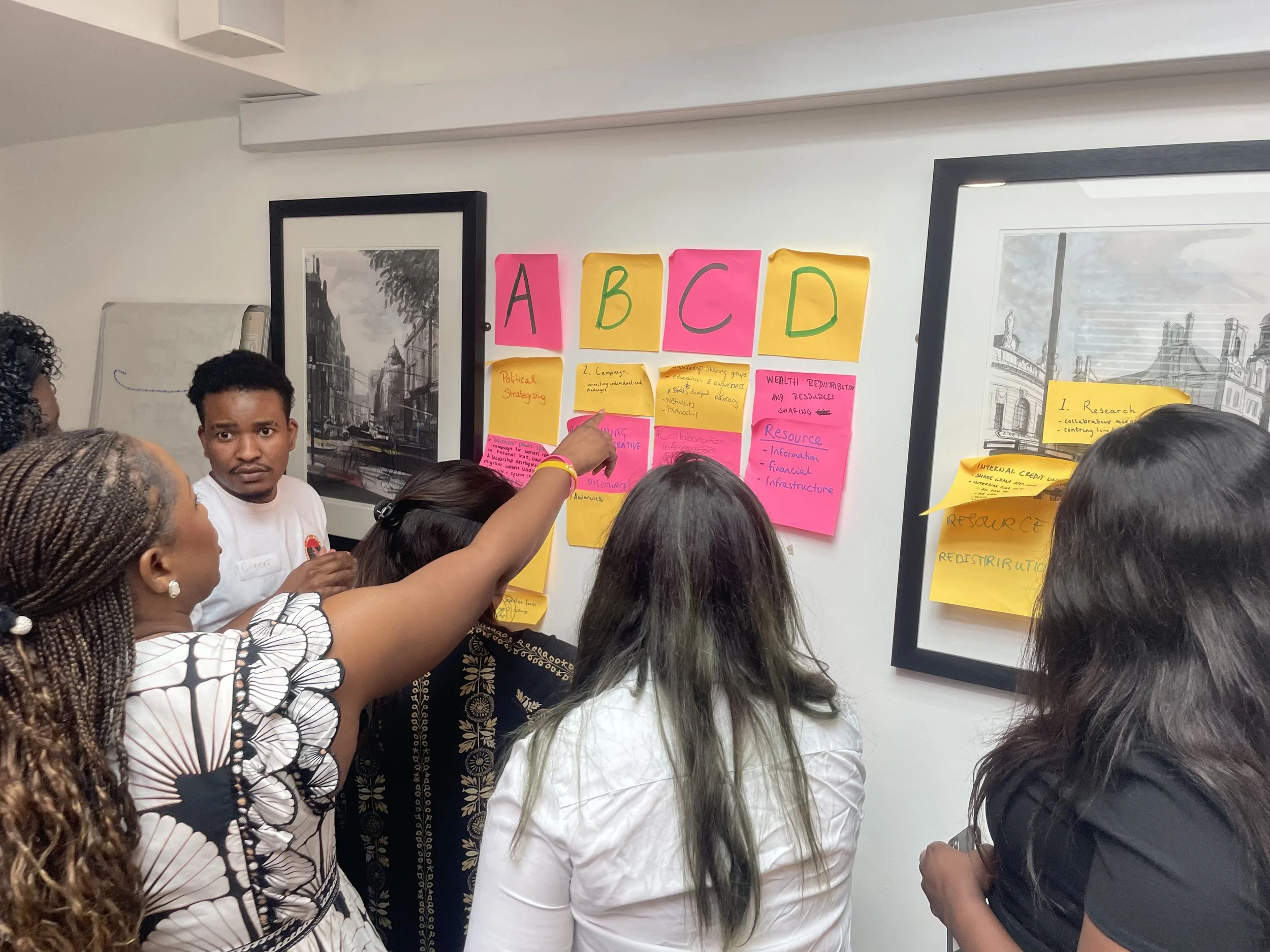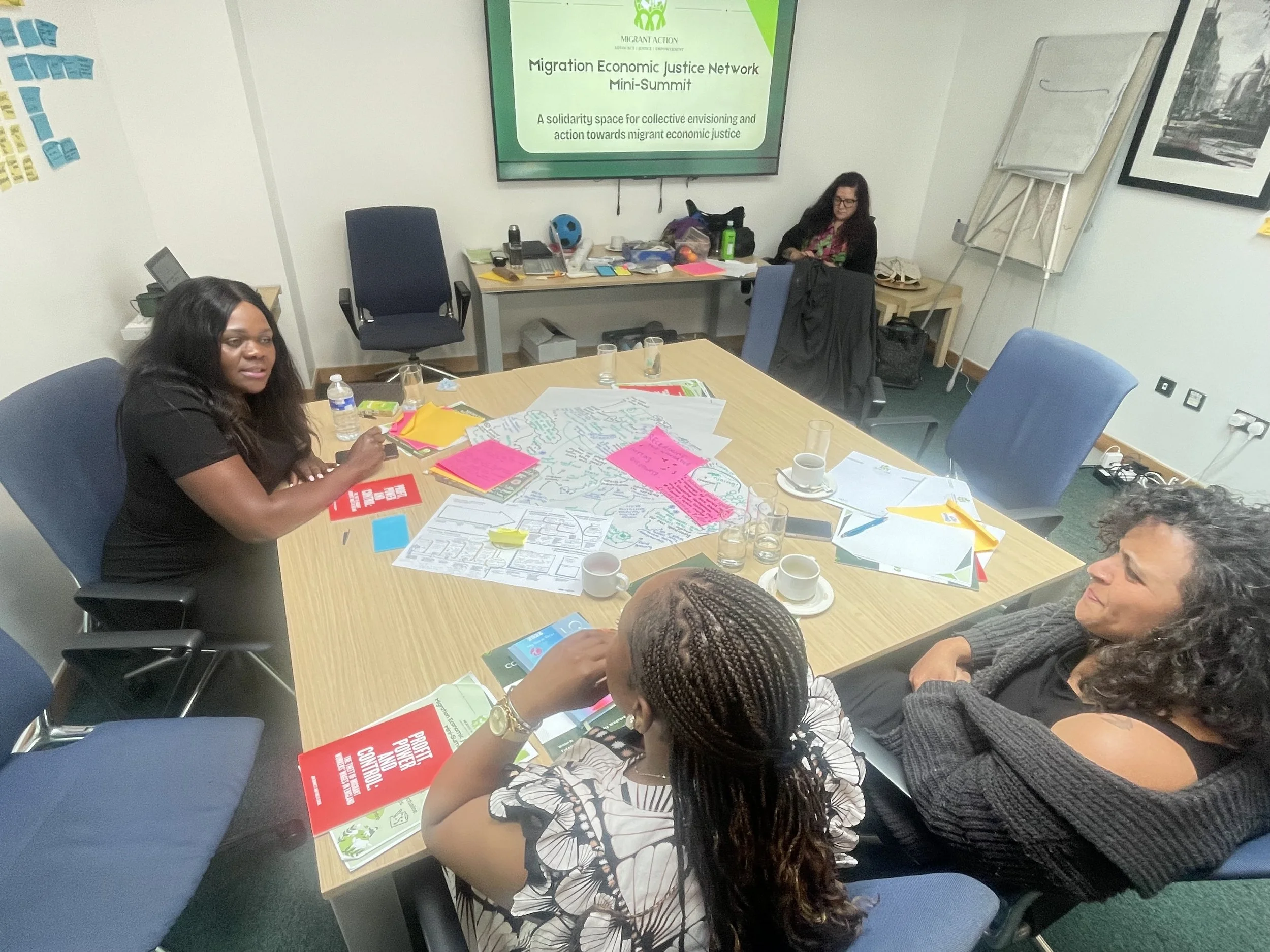Building Collective Power: Reflections from the Migration Economic Justice Network Mini-Summit
Our founder, Rumbidzai Bvunzawabaya, recently attended the Migration Economic Justice Network Mini-Summit, hosted by Migrant Action at the vibrant St Georges Conference Centre in Leeds. This dynamic gathering brought together a powerful mix of grassroots organisers, advocates, practitioners, and migrants, united in their commitment to justice, dignity, and systemic change. The atmosphere was one of authenticity, hope, and shared vision — a space where lived experience was not just acknowledged but centred as a vital source of knowledge and leadership.
Throughout the day, conversations explored what it truly means to pursue economic justice for migrants. It became clear that justice is not simply about providing access to opportunities but about restoring dignity, ensuring meaningful participation, and transforming the systems that have historically marginalised migrant communities. Migrant labour is not on the margins of the economy; it is central to it. As such, the movement for economic justice must be grounded in the lived realities of migrants and the structural inequalities they navigate daily.
Participants reflected on the various ways they contribute to change as facilitators, coaches, community organisers, and educators. Some spoke of their work supporting migrants facing displacement or precarious working conditions. Others shared projects focused on advocacy for children with disabilities and migrant workers trapped in debt bondage or caught in legal limbo. There was a particular focus on the care sector, with attendees discussing the need for a practical, localised guide to support migrant care workers, beginning in Leeds and expanding to cities like Manchester and Birmingham.
A highlight of the summit was learning about Coffee Afrik CIC, a lived-experience-led organisation based in East London. With over 28 community-led projects across seven hubs, Coffee Afrik provides services ranging from youth and women’s support to safe spaces for those affected by problematic drug use. Their work is deeply inspired by the Black Panther Party’s model of community programming and is rooted in love, care, and a harm-reduction approach that uplifts and empowers.
Digital tools also emerged as a crucial part of the strategy to protect and inform migrant workers. The PAWA initiative aims to connect workers via WhatsApp and a dedicated app, ensuring they are aware of their rights and equipped to organise against systemic injustices. These tools are seen not just as methods of communication but as part of a broader ecosystem of resistance and empowerment.
As the summit drew to a close, there was a strong sense that this was only the beginning. The Migrant Action team will be distilling the insights from the day into resources that will shape future strategy and action. Attendees were invited to remain engaged, reflect on their personal leadership, and help shape the emerging grassroots movement for migrant economic justice.
We are grateful to have been part of such a meaningful and energising event. It reminded us that when we centre lived experience, build in solidarity, and dream boldly together, we do more than imagine new systems — we begin to build them.
Would you like me to format this for publishing on your blog platform, or add a featured image suggestion?




